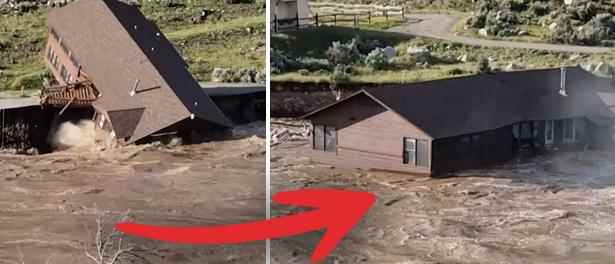The world’s oldest national park has been hit by violent floods.
Heavy rains and rapid snowmelt have led to devastation that has forced 10,000 people to flee.
– I have heard that this is a millennial event, whatever that means nowadays. It seems to be happening more and more often, says Cam Sholly, director of Yellowstone.
Yellowstone National Park is nearly 9,000 square kilometers and is located in the Rocky Mountains in the northwestern United States. In 1872, then-President Ulysses Grant decided that the area extending to the states of Idaho, Montana, and Wyoming should be designated a national park, the world’s first.
Now, in a few days, a huge torrent has torn up large wounds in the unique nature that has emerged over thousands of years.
Ahead of the 150th anniversary, lots of bridges, roads and houses have been swept away in the huge bodies of water that filled the park’s waterways far across the shore. Up to 10,000 people in nearby communities have fled their homes due to the floods.
PLUS: The heat record hits – 28 years earlier than expected
A house for park workers overturned in the Yellowstone River after the water masses tore the riverbank below it. The house floated eight kilometers before it sank. In the small village of Red Lodge, fish swam on the main street after a stream running through the community flooded.
Restoring damaged roads and buildings is expected to take many years, if at all possible.
The reason for the extremely high flows is heavy rain and an unusually fast snowmelt.
Although the flood could not be directly attributed to climate change, humans have contributed to increasing the risk of extreme weather, according to Rick Thoman, a climate expert working at the University of Alaska. He explains that a warmer climate makes extreme weather more likely than it has been “without the warming caused by human activity”.
– Will this happen in Yellowstone again in five or 50 years? Maybe not, but somewhere the same thing, or something even more extreme, will happen, he says.
